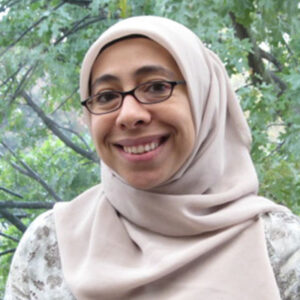
Regular Classroom: A common practice in my classes is group discussion on the weekly reading. In the classroom, I would divide students into groups, provide prompts, then circulate as the students engaged with each other over the reading. Once students had an opportunity to flesh out some ideas, we would then reconvene as a whole class to report back and further explore the readings.
Remote Classroom: As usual, each week, I assigned my students reading. However, now I asked students to post a one paragraph response to a Notebowl discussion group before our class time. Meanwhile, before our remote class discussion, I put students in groups and created a Google Doc for each group that provided the questions for their small group discussion and a place for them to record their work.
During our synchronous meetings, groups met in Zoom breakout rooms and collaborated on the Google Doc I provided. First, they took time to read each other’s one paragraph reflections about the reading on Notebowl. Using these reflections as context, the group agreed on the main argument of the reading and noted it in the Google Doc. Each group would then assign one member to share their findings once we all returned to the main session.
For longer readings, in addition to the above, I also assigned each group a certain portion of the text to drill down deeper into as a group. These questions (also in the Google Doc) focused on the key concepts from those pages that may have been more nuanced or harder to recognize. If there were multiple questions, the group would assign different students to report on each question.
As the groups were discussing, I could either drop into their Zoom sessions and/or “watch” their edits in the Google Docs. Once we came back together as a whole class, I could have each group report back or draw out what I saw as the most salient points of each group’s discussion by calling on students who were assigned to particular questions.
[Please view the group reading example provided here. Prof Yousef provides additional comments that allow for variations on the group discussion process.]

Hoda Yousef
Assistant Professor
History/International Studies/Middle East North African Studies
